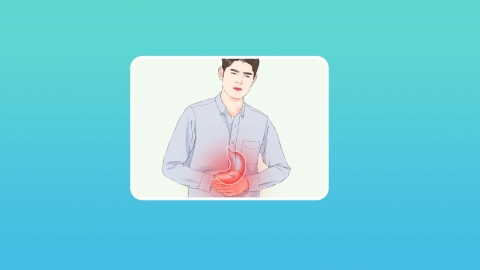What Are the Three Types of Food Most Feared for Gastric Bleeding?
Generally speaking, there is no such saying as "three foods that gastrointestinal bleeding patients should fear the most." Patients with gastrointestinal bleeding should avoid spicy and stimulating foods, hard and coarse foods, overly hot foods, greasy and hard-to-digest foods, and alcoholic beverages. These foods may worsen gastric mucosal damage and lead to deterioration of the bleeding or affect recovery. Detailed explanations are as follows:

1. Spicy and stimulating foods: Such as chili peppers, Sichuan peppercorns, ginger, garlic, mustard, etc. These foods can directly irritate the damaged gastric mucosa, worsen mucosal congestion and edema, and may even cause the mucosa to rupture and bleed again, which is not conducive to wound healing. These foods should be strictly avoided.
2. Hard and coarse foods: Such as nuts, fried foods, shellfish, and uncooked whole grains. Hard and coarse foods may rub against the damaged gastric mucosa during digestion, causing secondary injury to the wound or damaging blood vessels that have already stopped bleeding, which may lead to re-bleeding. Patients should choose soft-textured foods.
3. Overly hot foods: Such as hot soup, hot tea, and freshly cooked meals. Overly hot food can stimulate the gastric mucosa, causing mucosal vasodilation, which may lead to re-bleeding at sites that have already stopped bleeding and delay the mucosal repair process. It is recommended to allow food to cool to a warm temperature before consumption.
4. Greasy and hard-to-digest foods: Such as fatty meats, animal offal, cream products, and fried chips. These foods increase the digestive burden on the stomach, prolong the retention time of food in the stomach, and may stimulate excessive gastric acid secretion, thereby worsening mucosal erosion and delaying wound healing. Light and easily digestible foods are recommended.
5. Alcoholic beverages: Such as white spirits, beer, red wine, rice wine, etc. Alcohol can damage the protective barrier of the gastric mucosa, directly injure mucosal cells, and may cause gastric mucosal vasoconstriction or vasodilation, inducing or worsening bleeding. Even small amounts of alcohol may interfere with recovery and should be completely avoided.
During the recovery phase of gastrointestinal bleeding, diet should primarily consist of cool, soft, and easily digestible foods, such as millet porridge, soft noodles, and steamed egg custard. Eating small meals frequently and avoiding overeating are recommended. A proper diet can aid in wound healing and help maintain gastric health.




